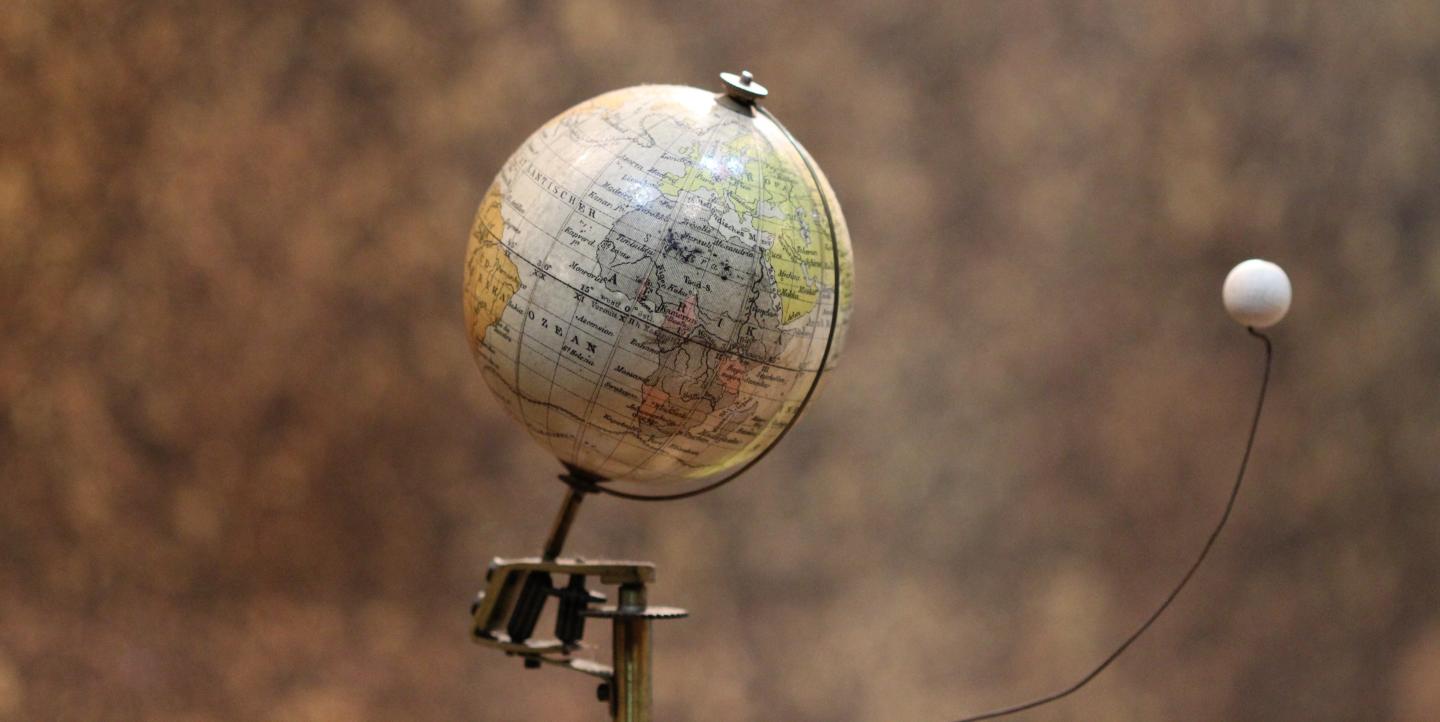Tiny particles of plastic, called microplastics, have been found in water and food all over the world. While research into their impact on human health is ongoing, a report published in 2018 found that potentially harmful microplastics in drinking water could affect the entire global population.
Orb Media, a research journalism nonprofit, published the report for journalists to use as a resource in their own work. The project supported reporting efforts in more than 100 countries and has appeared in 30 languages, said Orb Media CEO Victoria Fine.
Founded in 2011 by award-winning journalist Molly Bingham, Orb combines comparative global research with data analysis to produce reporting projects aimed at addressing issues of social and environmental sustainability around the world. The goal is to make their findings actionable for journalists on a local level.
“It's gone through several iterations, always with the focus of thinking about how we can link together understanding of big global issues across cultures and geographic boundaries,” said Fine.
Orb’s team is international, with journalists and researchers based in nine countries, including Germany, Brazil, Singapore, the United Kingdom and Ghana. The data team, headed by Chief Data Scientist Heather Krause, identifies and analyzes global patterns in data. Orb’s team of researchers and reporters use the data analysis to develop comprehensive reports that include the detailed findings, graphics and potential angles for other journalists to explore.
They’ve carried out this model on such topics as the spread of terrorism since 9/11, financial inclusion to alleviate poverty and the effects of rising water levels due to climate change.
Community health workers project
This month Orb released their latest project, which looks at community health workers and their positive impact on public health and child mortality in underserved areas.
Orb researchers began looking into child mortality in early 2020, gathering, analyzing and interpreting data from 160 countries. In March, the team honed in on community health workers. Using data identified by Krause’s tram, journalist and researcher Dr. Siddhi Camila Lamastructured a story around an interesting development: seven countries with seemingly little in common — Thailand, Argentina, Hungary, Mexico, Bangladesh, Honduras and Chile — demonstrated improved child mortality rates, all with limited formal health care funding.
“We were initially looking at health — specifically, child mortality — from a few different angles, with a focus on specific countries that had lower child mortality rates than expected,” said Lama. “Other [Orb] researchers focused on local inventions and innovations, traditional medicine, and the role of democracy and elections.”
Over the next few months, a team of five researchers consulted scientific studies and interviewed health experts to get to the bottom of what these countries were doing right.
Community health workers were the answer, they discovered. Residents, the government and civil society rely on these workers to provide vital health services for those who might otherwise go without.
“Their missions can vary widely, as can their training and equipment. This versatility is one of their key advantages — in a short period of time, they can be mobilized to meet many of their communities’ most pressing needs,” according to the report. “From an equity perspective, they also can be extremely effective at reaching historically underserved populations.”
With a free subscription, members can access the project’s research and data models on child mortality, downloadable graphics and list of suggested leads and angles to assist them in their own work.
Research during COVID-19
Research into the community health workers began in earnest in early March, as COVID-19 spread rapidly around the world.
“We have a really geographically diverse team and almost everyone needed to move at some point or needed to dramatically adjust their lifestyle, even though they were already working remotely,” said Fine. “We were really lucky that no one fell ill.”
The reporters and researchers on this team were based in Canada, Andorra, the U.S. and Mexico. While they are used to working remotely, the onset of the pandemic presented its own set of obstacles for the project.
“I think we may have done more on-the-ground research for this project had COVID-19 not been an issue,” said Lama. “Obviously, the average day of the community health worker changed, and being able to even visit them and their community was immediately off the table due to COVID-19.”
Future projects
Orb has already begun work on its next project, which will focus on some of the unexpected innovation that has emerged during the COVID-19 pandemic.
“We're building out a tracker and database of how communities and organizations are pivoting after COVID to become more sustainable,” said Fine. This includes how they might adjust interactions with their communities, which by extension may improve their own environmental and social sustainability, she explained.
The team soon plans to unveil an online portal for people in communities impacted by COVID-19 to share the projects and interventions they’ve been involved with. Researchers will be able to corroborate the submissions with data to gain a sense of where time, money and action are invested.
The project is in line with Orb’s continued efforts to lift the critical work journalists are carrying out in countries worldwide.
“Our belief system is that a lot of people are working really hard to make a better world around us, but oftentimes that work gets lost in the shuffle of the many other things that are happening,” said Fine. “Instead of trying to reinvent the wheel, we should be working harder to lift up and examine what's working and what's not, and make more careful choices based on that.”
Abby Geluso is a freelance reporter based in New York City.
Main image CC-licensed by Unsplash via Anne Nygård.

